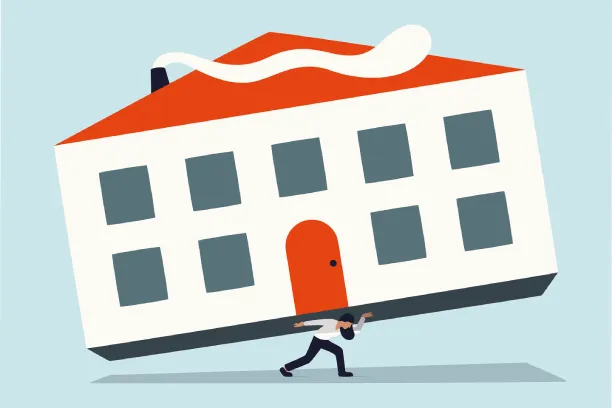When it comes to buying a home, there are countless factors to consider, making it a decision that can be both exciting and nerve-wracking. Timing is a crucial element in this process, and while it’s tempting to speculate on market trends, some key principles can help you determine the right time to take the plunge into homeownership.
Financial Stability and Prospects
The first and foremost consideration should be your financial situation. A history of stable and regular income, coupled with prospects for continued stability in the future, is imperative. Without it, banks may either deny your mortgage application or offer it at a much less favorable rate. Adequate income ensures that you can comfortably make your monthly mortgage payments and other homeownership-related expenses.
Family Planning
Another significant life event that can impact your decision to buy a home is the arrival of children. The need to create a family-friendly space where memories are made and pictures adorn the walls is a powerful motivator. When children are part of your plan, owning a home can provide a stable environment for their upbringing, making it a compelling reason to buy.
Market Speculation: A Risky Game
One common pitfall is trying to time the housing market based on predictions and speculations. Even experts can’t reach a consensus on market trends. Instead of trying to predict the market’s bottom, focus on finding a property that suits your needs. Remember, buying a home is a long-term investment, and short-term fluctuations in the market are unlikely to significantly impact your decision. Property expert May advises that if you’re ready to buy, you should go ahead and do so. The property market’s ebbs and flows should not deter you if you’ve found the right place after thorough research.
Affordability and Realistic Budgeting
Your ability to pay the mortgage should be a primary concern. Be honest and realistic about your budget. Concealing lifestyle habits and expenses from your broker can lead to financial strain in the future. May strongly advises against this, as no home is worth sacrificing your financial well-being. It’s important to understand that sometimes, renting might afford you a nicer and more spacious place than what your mortgage can offer. Be prepared to compromise on certain aspects, such as location or property type, to align with your budget.
The Sooner, the Better
May emphasizes that the sooner you get on the property ladder, the better. Owning a home can set you up for life, offering stability and financial security. If you’re in a stable job, consider going it alone or with assistance from your family. Every dollar invested in your property now can be a valuable asset for your future, especially if you’re planning a family.
Quality Over Quantity
When choosing a property, think long-term. It’s often wise to opt for quality over quantity. For example, if you have to decide between a house on a busy main road or a townhouse in a quality street, May suggests choosing the townhouse. Townhouses generally offer better capital growth potential and more flexibility for upsizing in the future.
Plan for the Future
Consider the impact of potential life changes, such as losing one income when children enter the picture. As you near retirement, your borrowing capacity from a bank may decrease. In such a scenario, May advises enjoying the purchase but also ensuring that the property accommodates your needs as you age. Think about factors like mobility and strata levies when making your decision.
In conclusion, the right time to buy a home hinges on your financial stability, family planning, and personal goals. Instead of attempting to predict market trends, prioritize finding a property that suits your needs and budget. Remember that property ownership is a long-term investment that can set you on a path to financial security and a comfortable future. So, when you’re ready, do your research, be financially responsible, and take the leap into homeownership.







